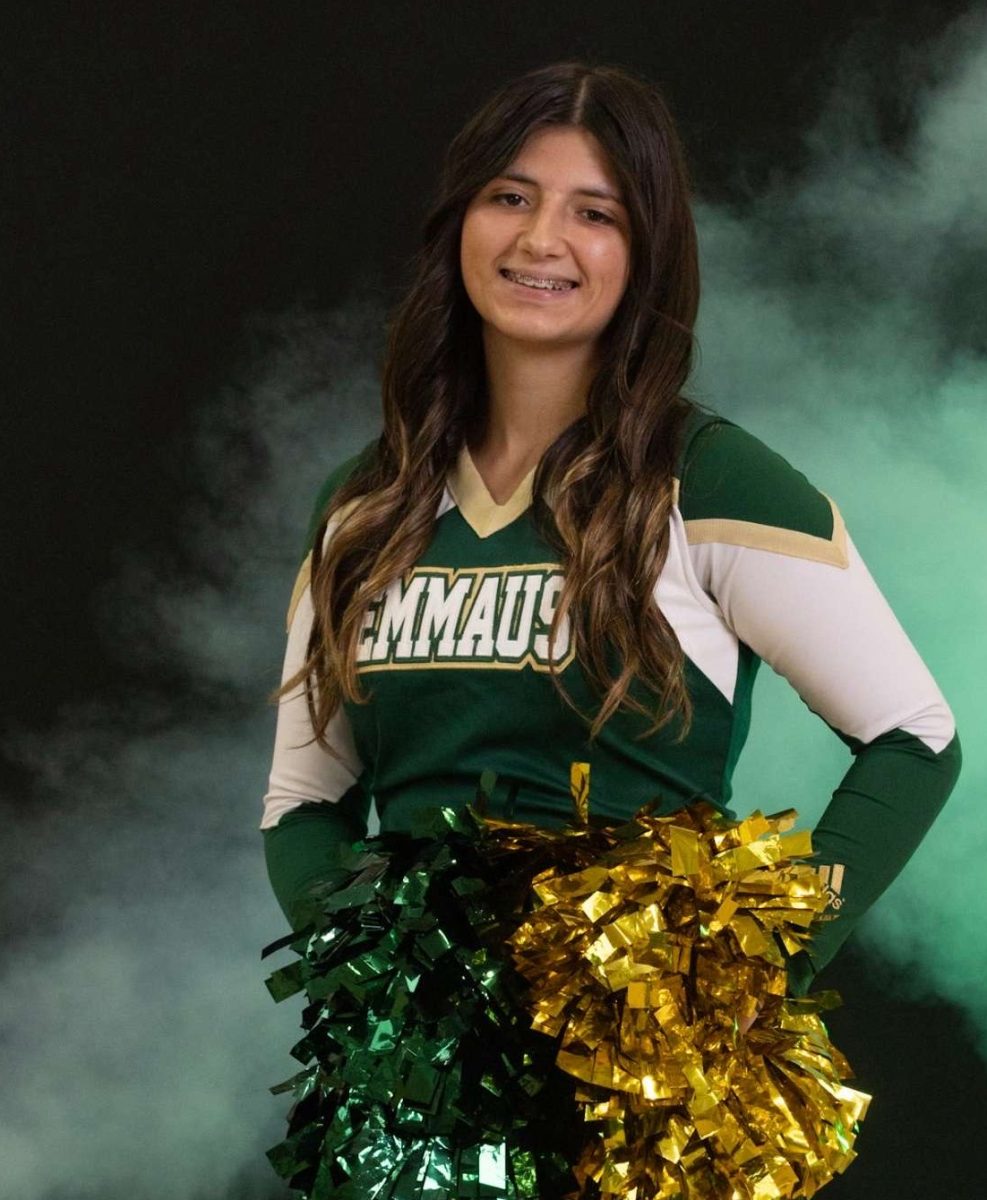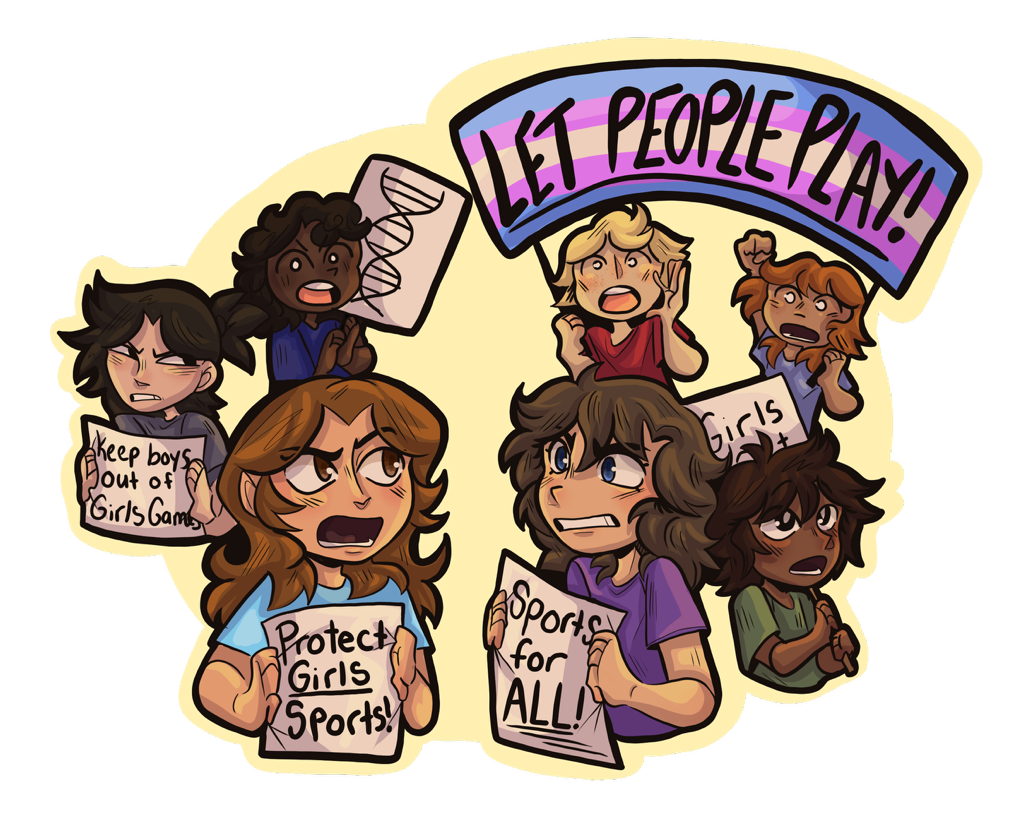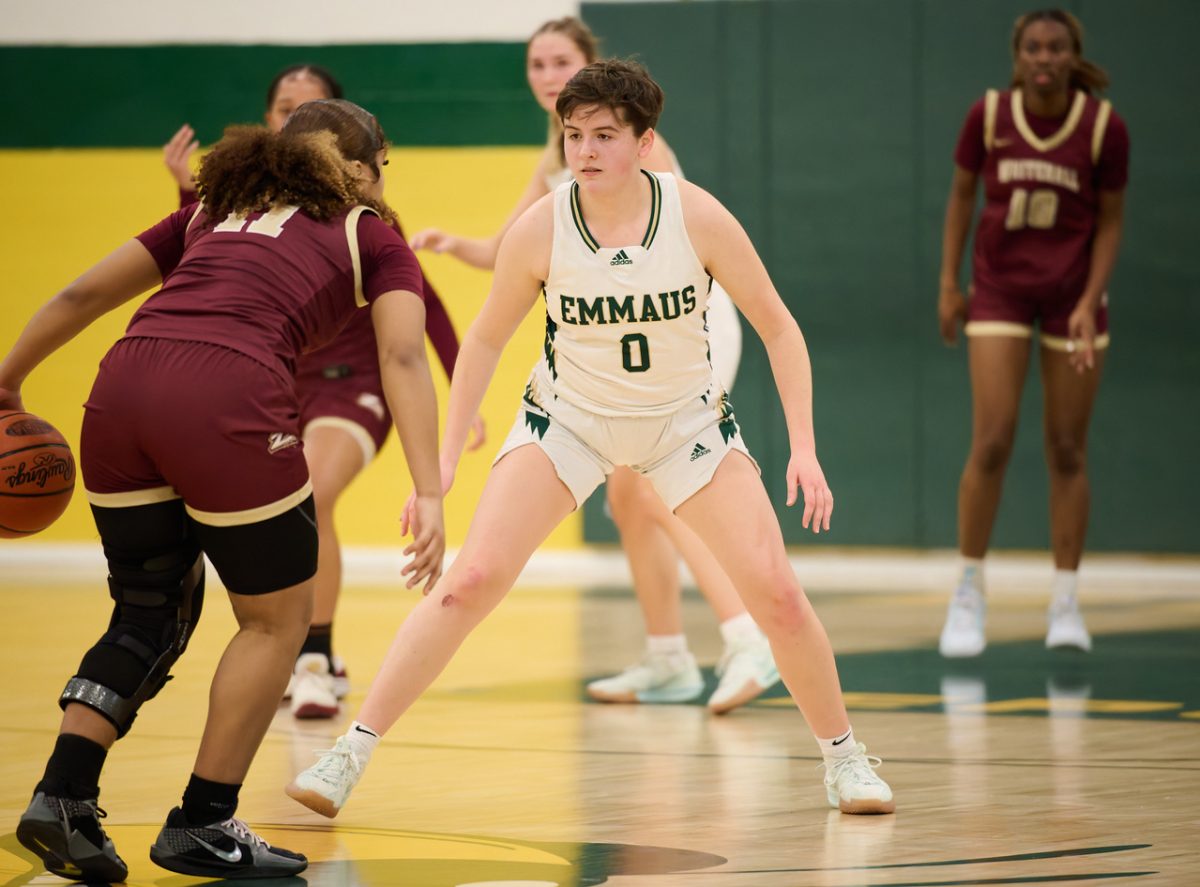This was previously published in our Senior 2024 Issue.
Over my high school career, I’ve managed three different sports teams: football, swimming & diving, and baseball. Managers are an often underappreciated part of high school sports, sacrificing their time after school to help with practice and meets.
Managers can help keep the dynamic of a team running smoothly, providing assistance on anything from making sure everything is cleaned up after practice, to helping with statistics, to charting different outcomes of plays. When broken down simply, managers do the jobs no one else wants to do. I started managing for the experience, to further my understanding of what makes a sports team function in an attempt to better my knowledge as I move onto college and major in sports media at Hofstra University next fall.
In the fall, I find myself on the football field. The blow of the whistle, a play begins, the crack of helmets colliding at the line of scrimmage, the roar of the crowd after a touchdown, the sound of the band playing the fight song all ringing through the stadium on Friday nights. However, that’s not when managers are most active — it’s on the calm afternoons after school, when fans aren’t filling the stands, when no band is playing, during practice.
My journey as a manager began my sophomore year when I first started helping the football team in the spring, around the same time I committed to managing swim & dive for the following year.
My first day showing up to a football practice, I met with Head Coach Harold Fairclough, he outlined what he would expect from me as a manager through the summer and also for the season during my junior year. To start, I was expected to record plays and make sure the field was cleaned up afterwards — simple enough for someone who didn’t really know what they were doing. I had virtually zero connections to the football team outside of having Coach Jacob Hildebrand and Fairclough as teachers.
As time went on I began growing more comfortable with the team. By my senior year I could go up and talk to any coach or any player, something that I would purposely avoid as a nervous sophomore.
On senior night as I walked on the football field for the final time, two years of memories filled my head: bus rides, practices, relationships built with players and coaches, big plays, wins, the feeling of going on the road and beating a team on their home field, all memories that have stayed with me even five months since my last season has ended. I’ll never forget the experiences I had learning the sport I’ve loved watching since I was young. There was no analyst who could explain Emmaus football that I could listen to. It was something I learned to experience for my own.
After 24 games, a 16-8 record, over 150 practices and both seasons ending in heartbreak, my journey came to an end in the fall. A firm handshake closed the book of high school football for me. My senior year was already a third of the way over.
During the winter season at the high school, I find myself on the pool deck, watching some of my closest friends compete in the water. The heat of the atmosphere, the cheering ringing through the small pool, the excitement after a huge swim, and the beeps of the stopwatches all encapsulate high school swimming.
Before high school, I had been a competitive swimmer all my life, and planned to continue that tradition. After a change of heart, I decided to end my swimming career, but still wanted to be on deck and around the sport. Freshman year, after sending an email to Head Coach Timothy O’Connor, I was informed that the decks were going to be kept as clear as possible due to COVID-19 restrictions. By my sophomore year, I had forgotten about managing until late winter.
After sending another email to Coach O’Connor, it was decided I would start my junior year managing on the deck.
Swim managing was an entirely different experience from football, I wasn’t needed at practice all the time, but needed to be in attendance at every meet to track times and splits.
Swimming was a sport close to me, as all of my family had done it, with my older brother and all three of my cousins having swam or currently swimming for the team, as well as my mom, aunt, and uncle when they were in high school.
Standing on a pool deck at Emmaus for the first time was a bone-chilling experience. I had spent my middle school years in the stands watching the team compete, and even though I wouldn’t be in the water, making an impact was enough for me.
On Senior Night, as I walked down the pool deck with my parents, more memories washed over me. My journey with the sport I grew up around was coming to an end. At that point, swimming had made up half of my life, but was now over. After 35 total meets, a 12-4 record in dual meets and a District XI Championship in 2022, my swimming journey came to an end after a 2nd place finish in Districts, and a warm embrace from Coach O’Connor capped it off. Swimming’s rigorous schedule teaches time management as well as discipline to perfect one’s craft, and while I wasn’t in the water, I still was able to take away these morals. While Swimming was a huge portion of my life, it also marked that my high school career was over two-thirds of the way done.
In the spring season, I find myself on the baseball diamond surrounded by the sounds and feels of America’s pastime. The ding of the metal bat, the sound of a ball hitting a glove, the cheers of the fans after a big play.
After my first year of managing football and swimming, I decided to go for a trifecta and do a spring sport, and baseball was the obvious choice.
I’ve grown up watching baseball, the Philadelphia Phillies, since as long as I can remember, going to the ballpark with my family to see players like Ryan Howard, Chase Utley, and Cole Hamels.
Baseball was always a fallback for me, so deciding to reach out to Head Coach Jeremy Haas about being the manager was an absolute no-brainer. When I showed up to a practice for the first time, I was told that I was in for a lot of charting and statistics. I was hooked from the beginning, showing up to practice in order to set up pitching machines or make sure equipment was ready to use.
I learned a lot about life from having conversations with the baseball coaches, such as how to have better time management and communications. I received help with the college process and was able to become more comfortable.
While baseball had the most ups and downs of any sport I managed, it’s the one I think I’ll take the most away from, and as I stood up at a podium delivering a speech, I realized that once the season was over my senior year was over.
“I’ll always carry these memories and experiences, the trials and tribulations with me as I move forward to the next part of my journey, and I’ll always be proud to have worn that ‘E’ on my chest,” I said during my speech.
After 45 games, a 27-18 record with a 25-8 in-conference record, my high school managerial career has come to an end after a heartbreaking loss in Districts. Thoughts and memories have poured through my head as I think about the end — not only the end of baseball season, but the end of managing, and the end of my high school career. And after one last circle in left field, my time at Emmaus is over.
While I don’t know if I’ll go on to manage a sport in college, I’ll always be thankful for the opportunities in high school. Through managing I’ve made new friendships while rekindling old ones, met coaches who have become my mentors, and learned so much about the sports I love, just as I set out to do.







